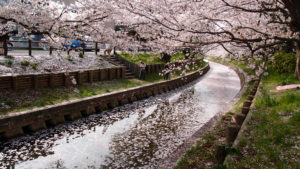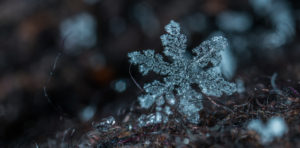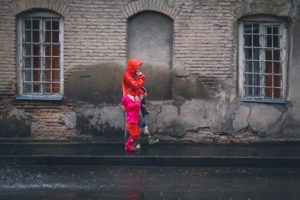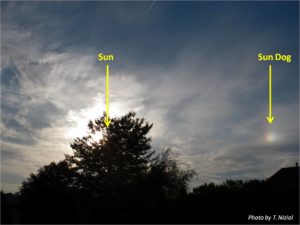Spring is finally here! Although we’re excited about the warmer weather and cool breezes, spring is also a season that’s known for unpredictable weather conditions. As we focus year-round on helping you stay safe no matter what the day brings, we often come across some pretty wacky weather terms.
So far this year, we’ve heard terms like “nor’easter,” “bomb cyclone” and “derecho” used to describe severe storms across the country. To help wrap our brains around some of these terms, we spoke to The Weather Channel’s Winter Weather Expert, Tom Niziol. Here are some of the unique terms that Tom shared with us.
The Wackiest Weather Term Tom’s Ever Heard: “I’ve got lots of crazy weather terms that sound strange, but I think the term would probably be “bombogenesis.” It’s what a meteorologist would refer to as the explosive deepening of a low pressure system. There’s a specific definition for that term, and it’s when a low pressure system’s central pressure drops at least 24 milibars in 24 hours. A milibar is a unit of pressure, so we oftentimes will hear it used when we see a weather report for our city. It will say the atmospheric pressure or barometric pressure was x. It can be expressed in units inches or milibars.”
Tom’s Favorite Weather Term: “I guess because one of my hobbies is photographing snowflakes. One of my favorite weather terms is a “dendrite.” A dendrite is more of a scientific term for what most people would know as a snowflake. A dendrite is a hexagonal or six-sided snow crystal that develops these beautiful branching arms to make the snowflake that we all know.”
Other Terms We Asked Tom About
Pineapple Express: “It’s also something that meteorologists refer to as an atmospheric river. That is a broadband of moisture in the atmosphere that can produce exceptional rainfall, especially on the west coast of North America. And the term “pineapple” was coined to refer to one of the source regions for these atmospheric rivers. One of the source regions that these come from, this tropical flow of moisture that can come into the west coast of North America, is from the Hawaiian Islands. It’s pretty neat, and in fact atmospheric rivers provide a tremendous amount of the rainfall through the mid-latitudes in the world. It’s a big phenomenon.”
Toad Strangler: “This is another colloquialism that can refer to a rainfall event. A toad strangler is really a colloquial term that refers to a very heavy downfall of rain. These are the kind of rainstorms that can cause flash flooding.”
Cyclogenesis: “The genesis or the birth of a cyclone. A cyclone is just a term that refers to any type of low pressure system. And low pressure systems just have a counter clockwise rotation of wind. When we’re talking about a low pressure system, we’re talking about a cycle. We talk about a tropical storm. That’s a low pressure system that has a counter-clockwise rotation. That’s another way to describe a cyclone.”
Sun Dog: “One of the ones that I like and have fun with that we see all the time in the atmosphere if we just take the time to look are sun dogs. Sun dogs are things that occur in the atmosphere when the sun is out. The sun shines through ice crystal clouds in the atmosphere. Those ice crystals will actually bend the rays of the sun so that on the same plane of the sun, off to the left and the right of the sun, you will see two little weak or mock suns that will often have the colors of the rainbow in them. What’s so neat about it to me is that they’re out there a lot in the sky, but either people are not educated to look for them, you know they haven’t been pointed out to them in the past, or in most cases in today’s world people are too busy to stop and smell the roses or stop and see the sun dogs. So when I’m outside with people, if we’re on a hike or walking, I look up and see these sun dogs, I just stop and grab everybody to show them.”
For updates on weather conditions across the country, follow The Weather Channel on Twitter (@weatherchannel). For information on how to be prepared no matter what the day brings, visit: http://www.redcross.org/get-help/how-to-prepare-for-emergencies.





